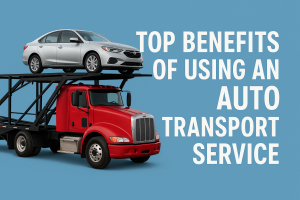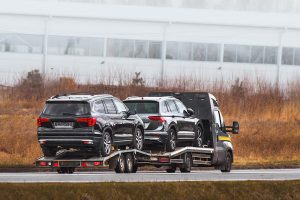The auto transport sector has started to roll out some game-changing practices. Learn more about how 2022 has become the launchpad to the future.
Key Takeaways:
- Electronic logs are keeping the transport industry safer
- Environmental concerns are driving innovation in fuel sourcing and consumption
- COVID-19 is driving a deeper focus on sanitation and health best practices
- Wider tech adoption combined with big data signals are streamlining carrier sectors
It isn’t a pun when we say the auto transport industry is always on the move. This year has seen significant new developments gaining traction on the road to becoming norms, and we’re going to break down the Top 4.
Some of these movements have been introduced by the Federal Motor Carrier Safety Administration (FMCSA) and represent a natural progression toward a more caring carrier sector. Others have been driven by the Environmental Protection Agency (EPA) and its continuing battle against carbon emissions. Still more changes are the result of the pandemic’s ongoing impact on the carrier sector and its lasting effects. Lastly, we have technology that is finally moving the transport industry toward a more streamlined and efficient model.
1. Electronic logging devices (ELDs)
This technology spells great things for the auto transport industry and those it serves. ELDs entered phase 3 of full compliance in late 2019, making 2020 the first full year of broad deployment and 2021 the year they’ve become the norm. This practical and person-centric approach makes for a more humane industry for drivers, bigger bottom lines for compliant fleets, and a safer, more effective carrier base for customers.
ELDs interface with a carrier’s engine to record hours of service (HOS), so drivers can stay compliant with FMSCA HOS regulations and transmit that data directly to safety officials. This tech promotes greater care for drivers, who are often subject to longer-than-permitted hours on the road. The tech also promotes care for drivers who are subject to bullying and coercion from profit-hungry bosses.
So far, ELDs have made a massive difference to the quality of carrier service and the wellbeing of drivers. Annual crashes are down by 1,844 cases (an annual industry saving of $570 million), with 562 fewer injuries and 26 fewer deaths.
2. Greener fleets and economical shipping
Investment in more environmentally friendly carrier models is becoming a must. The transport sector is America’s worst offender when it comes to harmful greenhouse gases, and freight activity is projected to almost double within the next two decades. Several solutions are rolling out to reverse the damage being done by excessive carbon emissions.
Expect to see more accurate matches between trailer size and carrier load as unfilled trailer space gets dumped in favor of ones that fit the bill. The EPA has also released emissions regulations for commercial truck model years 2021 through to 2027 that, if they’re as successful as phase one of this operation, will save carriers billions in fuel expenses. They should also reduce oil consumption by two billion barrels and lower CO2 emissions by around 1.1 billion metric tons.
There’s no avoiding the fact that fleet upgrades such as altering existing models, adopting electric or hybrid rigs, or installing hydrogen fuel cells (a projected upward trend in the next five to 10 years) will cost more in the short term. This will likely be temporarily reflected in auto carrier rates. Ultimately, greener carriers will operate at a lower cost and with greater efficiency. This bodes well for the environment and future auto transport customers.
3. Smarter carriers and healthier practices
Our earlier blog highlighted the rise of contactless car buying, a phenomenon that may well become the standard way to purchase vehicles. Auto carriers are likely to become increasingly important in meeting the demand of internet shoppers now reluctant to risk a face-to-face dealership pickup because of the pandemic. This means carrier companies must, at the very least, excel at training drivers in sanitation and safety practices.
Carriers will also have to develop greater foresight in 2022 and beyond to guard against sudden operational disruptions. Sourcing alternate routes, generating a larger pool of qualified drivers, and preparing for both dips and surges in customer demand will breed smarter carriers who will ultimately prove to be more reliable and efficient service providers.
4. TMS, ALMs, and the drive toward big data
All arms of the transportation industry have been traditionally slow in catching up with technology, but 2022 is changing that. Transport Management Systems (TMS) are helping fleets streamline their back-office tasks and communicate more effectively with drivers and customers. TMS technology is aiding auto carriers in the inevitable industry-wide shift toward single-platform operations, which will only increase their efficiency of service and ability to better process reams of transport data.
Advanced Load Matching (ALM) services are also helping auto carriers and brokers make quicker matches between cars that need to be transported and the fleet vehicle best suited for the job. Software such as LoadSmart’s Smart Match tool is helping transporters do more and make more, boosting productivity and lowering overall operating costs and this may prove beneficial for customer rates.
The bottom line on transport trends
Technology does two things to any industry it touches. It eventually becomes cheaper, leading more businesses to adopt it. Also, those businesses then have to compete for clients just like they did before. The end result for the auto transport industry will be a more innovative, connected, and efficient pool of potential carriers.
You may have noticed that almost every trend on the list will save a significant amount of auto transporter’s money. It remains to be seen how much this will positively or negatively impact how much customers pay for auto transport. This makes working with an auto broker to find the best possible carrier for your needs and budget timeless.
Ship with the team that’s always on trend
Mercury Auto Transport is a nationwide, full-service auto shipping company that connects buyers with reliable vehicle carriers anywhere in the country. We keep a finger on our industry’s pulse to make sure the companies we recommend are current and fully compliant with all necessary regulations and customer expectations. Our process is transparent and trustworthy, and we’re always working to get you the best deal. Call us today for a quote!






